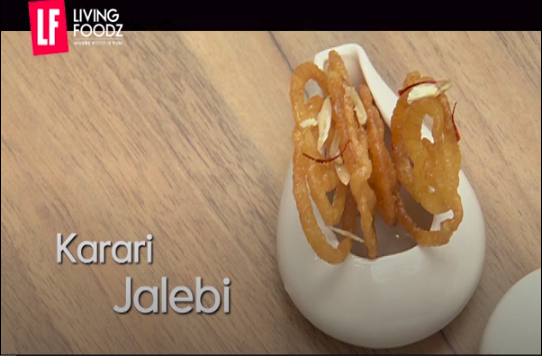Get To Know How Jalebi Has Originated And It’s Different Names
People believes that Jalebi is derived from similar kind of dish from West Asia. As per the Anglo-Indian words and phrases glossary, Hobson-Jobson, the Jalebi word is derived from an Arabic word zulabiya or the Persian zolbiya.
In the Christian communities of the West Asia, it served on the feast of Epiphany (Theophany) often with cinnamon and dry sugar or the confectioners sugar. While in Iran there was a different tradition of serving the sweet items to poor during the time of Ramadan. And at that time the jalebi was known as zolbiya. But if we go more into the past we could find that a cookbook of 10th century has so many different recipes given for zulubiya. And in 13th century, the sweet recipes which are most accepted are mentioned in cookbook written by Muhammad bin Hasan al-Baghdadi.
Then the dish came into Medieval India by the Turkic invaders of Persian speaking. And in 15th century India, there were Jalavallika or Kundalika names used for Jalebi. There’s a famous Jain Author named Jinasura, in his work Priyamkarnrpakatha in 1450 CE, mentioned Jalebi in context of dinner held by some rich merchant. In sanskrit work Gunyagunabodhini around 1600 CE there is list of the Jalebi Recipe & ingredients is mentioned.
In the Christian communities of the West Asia, it served on the feast of Epiphany (Theophany) often with cinnamon and dry sugar or the confectioners sugar. While in Iran there was a different tradition of serving the sweet items to poor during the time of Ramadan. And at that time the jalebi was known as zolbiya. But if we go more into the past we could find that a cookbook of 10th century has so many different recipes given for zulubiya. And in 13th century, the sweet recipes which are most accepted are mentioned in cookbook written by Muhammad bin Hasan al-Baghdadi.
Then the dish came into Medieval India by the Turkic invaders of Persian speaking. And in 15th century India, there were Jalavallika or Kundalika names used for Jalebi. There’s a famous Jain Author named Jinasura, in his work Priyamkarnrpakatha in 1450 CE, mentioned Jalebi in context of dinner held by some rich merchant. In sanskrit work Gunyagunabodhini around 1600 CE there is list of the Jalebi Recipe & ingredients is mentioned.
Jalebi Recipe
As per the geographic variations there are several names and recipes are connected to Jalebi by the time. In Iran, the Jalebi is called as zolbia in Persian. And to make the Jalebi more sweet, sugar & honey are used and flavoured with rose water and saffron. In Indian subcontinent this called as Jalebi and it served with rabri, condensed milk and also eaten with vegetable curry & kachori in north India.
A website called Living Foodz tells that In middle Eastern countries including Levant it called as zalabia and sometimes zalabiya. Where it is known as zilebi in Maldives. In Nepal, the sweet jalebi is called as Jeri where the word is derived from Jangiri & Jahangir, the Mughal emperor.
In Algeria, Tunisia and Libya, they are known as zlabia or zlebia. They are part of the pastry. A sponge cake cooked in a specific round pot in tannur, is the Zalabia funiyya. It’s a popular dish to serve as per the traditions in the Ramadan. In Sri Lanka, this traditional sweet Jalebi called as Pani Walulu or Undu Walulu could be made by frying a kind of doughnut, undu flour, kithul treacle & rice flour.
A website called Living Foodz tells that In middle Eastern countries including Levant it called as zalabia and sometimes zalabiya. Where it is known as zilebi in Maldives. In Nepal, the sweet jalebi is called as Jeri where the word is derived from Jangiri & Jahangir, the Mughal emperor.
In Algeria, Tunisia and Libya, they are known as zlabia or zlebia. They are part of the pastry. A sponge cake cooked in a specific round pot in tannur, is the Zalabia funiyya. It’s a popular dish to serve as per the traditions in the Ramadan. In Sri Lanka, this traditional sweet Jalebi called as Pani Walulu or Undu Walulu could be made by frying a kind of doughnut, undu flour, kithul treacle & rice flour.

Comments
Post a Comment